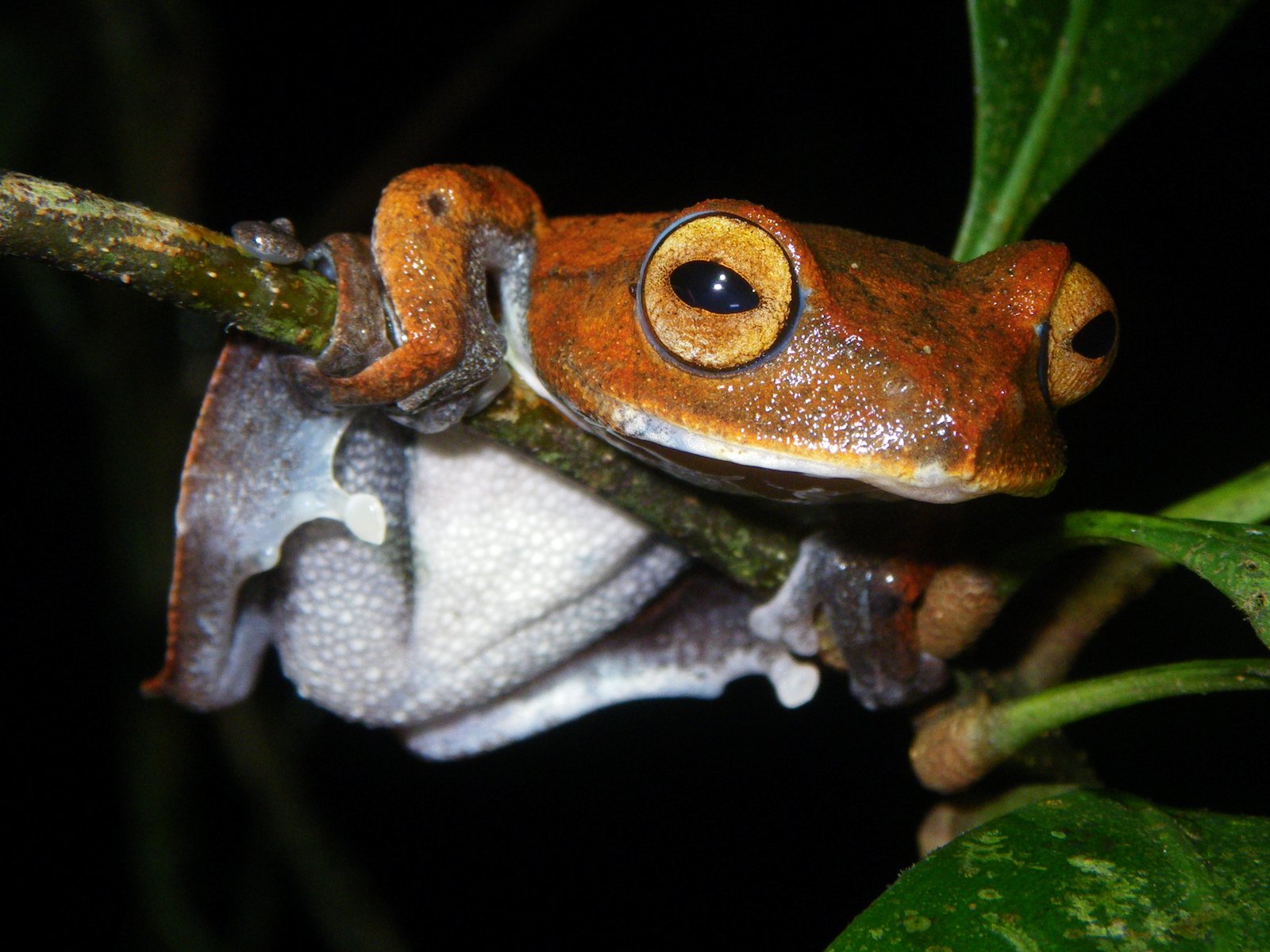See the vampire flying frog...
On this page...
Sucked in by Twilight and True Blood? Here's a new breed of vampire to add to the list!

© Jodi Rowley/Australian Museum
Interest in the Museum's discovery has been truly global - from local radio, tv and print to Al Jazeera in Kuala Lumpur, Colombian National Radio in Bogota and of course EVERYWHERE on blogs !
Check out a few of the places talking about it:
From the far jungles of Vietnam Rhacophorus vampyrus - the Vampire Flying Frog - has emerged as a strange new species of frog, recently discovered by Australian Museum scientist Dr Jodi Rowley and colleagues.
This unusual frog has adapted for life in trees, using webbed fingers and toes for moving from great heights and gliding, hence the ‘flying frog’ name. But it’s the strange black ‘fangs’ the species’ tadpoles display which have earned it a place in the vampire world...
The new species is known only to inhabit a high-elevation area of forest in southern Vietnam, breeding in holes in trees.
“It’s pretty cool that these frogs have adapted to live in the trees so completely, even using water holes in trees to breed in and protect their offspring from all the predators that lurk in rivers and ponds,” comments Jodi.
“But the fanged tadpole - I’ve never seen anything like it before!”
In place of a normal set of mouthparts (usually similar to a beak), the tadpole of the Vampire Flying Frog has a pair of hard, black ‘fangs’ protruding from the underside of its mouth.
This new discovery is giving Jodi and her colleagues plenty to think about.
“This is the first time that ‘fangs’ have been recorded in a tadpole. We can only speculate at this stage what the fangs are for and we are now doing further research to look in to why the tadpoles have them,” says Jodi.
JJL ROWLEY, TTD Le, TAD Tran, BL Stuart, DH Hoang. (2010). A new tree frog of the genus Rhacophorus (Anura: Rhacophoridae) from southern Vietnam. Zootaxa 2727: 45–55.

